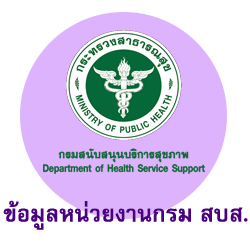การประเมินผลการดำเนินงานป้องกันควบคุมโรคติดเชื้อไวรัสโคโรนา 2019 เชิงรุก จังหวัดระนอง
คำสำคัญ:
การประเมินผล, การดำเนินงานเชิงรุก, โรคติดเชื้อไวรัสโคโรนา2019บทคัดย่อ
การศึกษานี้ มีวัตถุประสงค์เพื่อ 1) ศึกษาสถานการณ์ระบาดของโรค COVID-19 ในจังหวัดระนอง 2) ประเมินผล การดำเนินงานป้องกันควบคุมโรค COVID-19 เชิงรุก จังหวัดระนอง 3) ศึกษาปัญหาอุปสรรคต่อการดำเนินงานป้องกันควบคุมโรค COVID-19 เชิงรุก จังหวัดระนอง และ 4) ศึกษาข้อเสนอรูปแบบการปรับปรุง พัฒนาการดำเนินงานป้องกันควบคุมโรค COVID-19 เชิงรุก จังหวัดระนอง เป็นการวิจัยแบบผสมผสาน (Mixed methods) การศึกษาเชิงคุณภาพ ศึกษาในบุคลากรที่เกี่ยวข้องกับการดำเนินงานป้องกันควบคุมโรค COVID-19 เชิงรุก จังหวัดระนอง ทั้งระดับจังหวัดและ 5 อำเภอ โดยการสัมภาษณ์เชิงลึกตามแบบสัมภาษณ์กึ่งโครงสร้างและเลือกแบบเจาะจง การศึกษาเชิงปริมาณศึกษาในกลุ่มผู้ติดเชื้อ COVID-19 จำนวน 424 ราย ด้วยการสำรวจอย่างง่าย เลือกกลุ่มตัวอย่างแยกรายอำเภอ สุ่มแบบ Simple random sampling โดยการจับฉลากชนิดไม่แทนที่กลับคืน และการศึกษาระบาดวิทยาเชิงพรรณนาจากแบบสอบสวนโรค COVID-19 (แบบ Corona 2) ระหว่างวันที่ 1 มกราคม - 31 ธันวาคม 2564 จำนวน 9,875 ราย ซึ่งเป็นผู้ป่วยโรค COVID–19 ที่ขึ้นทะเบียนรักษาในโรงพยาบาลทุกแห่งของจังหวัดระนอง ค่า IOC = 0.67 ค่าความเชื่อมั่น = 0.75 ตรวจสอบข้อมูลข้อมูลเชิงคุณภาพแบบสามเส้า วิเคราะห์ข้อมูลเชิงปริมาณด้วยสถิติเชิงพรรณนา คือ ค่าร้อยละ และค่าเฉลี่ย ส่วนข้อมูลเชิงคุณภาพทำการวิเคราะห์เนื้อหา
ผลการศึกษา พบว่า สถานการณ์ระบาดของโรค COVID-19 ในจังหวัดระนอง ปี พ.ศ. 2564 มีผู้ติดเชื้อโรค COVID-19 จำนวน 9,875 ราย เป็นเพศหญิง ร้อยละ 54.53 อายุมัธยฐาน 33 ปี (min = 1 วัน, Max = 112 ปี) อายุ 60 ปีขึ้นไปมากที่สุด ร้อยละ 11.82 รับจ้างทั่วไป ร้อยละ 23.94 สัญชาติไทย ร้อยละ 69.79 อยู่ในอำเภอเมืองระนอง ร้อยละ 85.03 อาการไข้ ร้อยละ 53.95 เริ่มมีอาการป่วยในสัปดาห์ที่ 15 พบผู้ป่วยมากที่สุดในสัปดาห์ที่ 34 เป็นการระบาดจากแหล่งโรคหลายแหล่งหรือ ระบาดจากคนสู่คน ความคิดเห็นของผู้ติดเชื้อ COVID-19 จังหวัดระนองต่อการดำเนินงานป้องกันควบคุมโรค COVID-19 เชิงรุก พบว่า ส่วนใหญ่อยู่ในระดับสูง ร้อยละ 67.22 ส่วนการประเมินผลการดำเนินงานป้องกันควบคุมโรค COVID-19 เชิงรุก จังหวัดระนอง พบว่า กระทรวงมีนโยบายเป็นกรอบให้พื้นที่ดำเนินการ และปรับเปลี่ยนไปตามบริบทของพื้นที่ เกิดการบริหารจัดการเชิงพื้นที่ เช่น การบูรณาการบุคลากรทีมสอบสวนโรคจากสหวิชาชีพ การบริหารจัดการของคณะกรรมการควบคุมโรคติดต่อระดับจังหวัด ความร่วมมือของภาคีเครือข่ายและภาคเอกชนทำให้การดำเนินงานป้องกันควบคุมโรค COVID-19 ประสบผลสำเร็จ ปัญหาอุปสรรคต่อการดำเนินงานป้องกันควบคุมโรค COVID-19 เชิงรุก จังหวัดระนอง ปัญหาหลักที่พบ คือ การปกปิดข้อมูล Timeline ซึ่งมีผลต่อการกักตัวของผู้สัมผัสเสี่ยงสูง ดังนั้น การปรับปรุงพัฒนาการดำเนินงานป้องกันควบคุมโรค COVID-19 เชิงรุก จังหวัดระนอง ควรมีการพัฒนาระบบเฝ้าระวังให้เป็นระบบ ร่วมกับการสื่อสารความเสี่ยงที่มีประสิทธิภาพ เพื่อความร่วมมือในการป้องกันควบคุมโรคในพื้นที่ต่อไป
เอกสารอ้างอิง
Department of Disease Control. (2021). Guidelines for Surveillance and Investigation of Coronavirus Disease 2019: COVID-19. Retrieved from https://ddc.moph.go.th/viralpneumonia/file/g_srrt/g_srrt_221264.pdf.
Department of Disease Control. (2020). Action plan and response plan for the prevention and control of coronavirus disease 2019 (COVID-19) according to the severity level during the no-vaccination period. Retrieved from https://ddc.moph.go.th/uploads/ckeditor2/files/ Action plan and response to COVID-19_11092563.pdf. (in Thai).
Department of Disease Control. (2021). Covid-19 situation report. Retrieved from https://ddc.moph.go.th/viralpneumonia/file/situation/situation-no667-311064.pdf. (in Thai).
Ranong Provincial Public Health Office. (2021).Summary of Surveillance and Control Performance Prevention of Coronavirus Disease 2019 (COVID-19) for fiscal year 2021, Ranong Province. copy documents. (in Thai).
Educational Quality Assurance Center. King Mongkut’s University of Technology North Bangkok. (2005). Proactive People Development. Retrieved from https://www.qa.kmutnb.ac.th/qa_news/2548/QANEWS087_25480101. pdf. (in Thai).
Medical and Public Health Emergency Response Operations Center. Ranong Provincial Public Health Office. (2021). Press release, Ranong Provincial Public Health Office EOC 399/2521 (31 October 2021). copy documents. (in Thai).
Ratnarathorn, Anutara. (2020). Coronavirus disease 2019 (COVID-19) case report: the first case in Thailand and outside China. Journal of Bamrasnaradura Infectious Diseases Institute. 14(2): 116-123. (in Thai).
Ministry of Public Health. (2020). Announcement of the Ministry of Public Health regarding Name and Significant Symptoms of Dangerous Communicable Disease (3rd Edition) 2020. Retrieved from https://ddc.moph.go.th/uploads/files/10020200514102630.pdf. (in Thai).
Suebsak, Kannawarit. (2021). A Study of Crisis Management System and Emerging Disease Management Model (Covid-19) in Pathum Thani Province. Journal of Development Management Research. 11(3): 486-495. (in Thai).
Jarnnok, Thewaporn. (2021). An epidemiological study of cases of coronavirus disease 2019 (COVID-19) in a state quarantine site during April 2020–April 2021. Retrieved from https://ddc.moph.go.th/uploads/ckeditor2/files/Full%20paper%20SQ_COVID19_2021. pdf. (in Thai).
Royal Decree on Public Administration in Emergency Situations 2005. (2020, 25th March) Government Gazette. (No.137) Retrieved from http://www.ratchakitcha.soc.go.th/DATA/ PDF/2563/E/069/T_0010.PDF. (in Thai).
Doctors of Infectious Diseases and Epidemiology from the Faculty of Medicine Ramathibodi Hospital Mahidol University. (2020). COVID-19 Fundamentals Part 1 COVID-19: Infection, Sickness, Care, Prevention transmission and infection. Retrieved January 10, 2022, from http://phoubon.in.th/knowledge_of_covid_rama.pdf. (in Thai)
Petchrot, Laddawan. & Chaniprasat, Ajara. (2004). Research Methodology. Bangkok: Pimdee Press. (in Thai). Niyomangkun, Surin. (1999). Sampling Technique. 4thed. Bangkok: Kasetsart University Press. (in Thai).
Best, John W. (1977). Research in Education. 3rded. Engle wood Cliffs, NJ: Prentice - Hall. Wade M Vagias, editor. (2006). Likert-type scale response anchors. Clemson International Institute for Tourism & Research Development. Department of Parks, Recreation and Tourism Management: Clemson University.
Yamane, Taro. (1976). Statistics: An introductory analysis. 2nded. New York: Harper and Row.
Zhongjie Li, Qiulan Chen, Luzhao Feng, Lance Rodewald and et all. (2020). Active case finding with case management: the key to tackling the COVID-19 pandemic. Lancet 2020; 396: 63–70 Published Online June 4, 2020 https://doi.org/10.1016/S0140-6736(20)31278-2.
ดาวน์โหลด
เผยแพร่แล้ว
วิธีการอ้างอิง
ฉบับ
บท
การอนุญาต
ลิขสิทธิ์ (c) 2022 วารสารวิชาการกรมสนับสนุนบริการสุขภาพ

This work is licensed under a Creative Commons Attribution-NonCommercial-NoDerivatives 4.0 International License.



